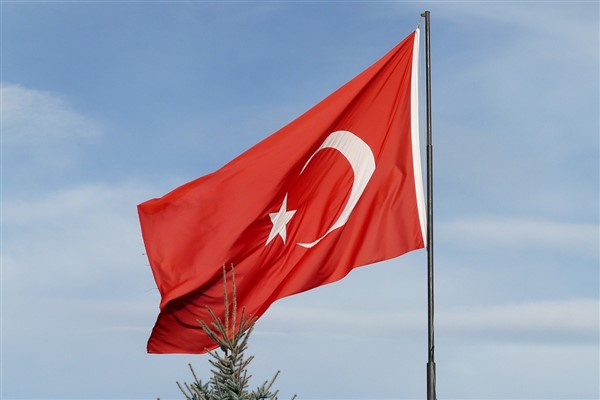The data showed annual inflation rose from 78.6% in June to 79.6% last month, the highest level since September 1998, slightly less than economists had predicted. We had an inflation expectation of 3.3% periodically and rising to 81.3% annually. Despite slightly below market expectations, inflation continues to rise. Turkish inflation also picked up again and, just months away from peaking, rose to unprecedented levels after the 1997 Asian financial crisis. The central bank's adherence to an extremely loose monetary policy has had a significant impact on inflation reaching such high levels since the first rate cut. As efforts to stabilize the lira without interest have faltered at a time when Russia's invasion of Ukraine is increasing the cost of everything from food to energy, rising consumer prices have forced officials and economists to revise forecasts upwards multiple times this year.
Developed countries have to deal with the fastest inflation rates in decades. Turkey, on the other hand, has a rate that differs even from the developed world and remains at the top of the markets followed in the league of inflation. Turkey's current inflation rates lag behind only a few countries, such as Zimbabwe, Venezuela, and Lebanon, where price increases are already in the triple digits.
If we look at the sub-items of inflation; The decline in energy prices due to gasoline and fuel prices seems to have been effective in the slower than expected periodical increase. Core C inflation, which excludes energy and food, rose 3.5% monthly and 61.7% year-on-year, not fully confirming the headline situation and pointing to continued higher pressure on core goods and services. The B index (excluding energy, tobacco and unprocessed food prices) also maintains its high level at 3.7% monthly. In many goods and services groups, there are still price increase trends above the historical trends. The sub-details of the special CPI indicators show that the inflation in non-energy and non-food goods and durable goods has accelerated and the increase in the prices of services continues to be high. Rent inflation is also at its highest level since 2003, when the series began, despite regulation limiting price increases.
Producer prices, which reached their highest level since February 1995 with a monthly increase of 5.2% and an annual increase of 144.6%, also increase the risks on consumer inflation. Istanbul inflation, announced by the ITO, showed that the price increase in July was 99.1% compared to the previous year. The items that showed higher increases than the headline inflation were health 6.98%, alcoholic beverages and tobacco 6.85%, entertainment and culture 4.50%, household goods 3.91%, food and non-alcoholic beverages 3.15%, and restaurants and hotels 2.49%. While lower increases were seen in the headlines in items such as housing, communication, education and clothing, transportation prices also decreased on a monthly basis due to the stagnation in gasoline and fuel prices. The possibility of some stagnation in food may be in question in the coming months within the framework of the Ukraine grain corridor agreement and its positive effects on global shipments.
In general, we consider that the trend will be in the direction of continuing to increase inflation. The increase in the exchange rate and energy prices will be the most problematic factors in this context. It seems that the monthly slowdown in energy prices will not reflect much downwards on the general trend of inflation. On the other hand, despite the seasonal conditions, there was no decrease in food inflation during the summer months, on the contrary, the upward trend continued. We expect inflation to continue to rise in the August-September periods and not fall below the current path until the last quarter. We will see an inflation that will hover above 80% in autumn, if the rise in foreign currency and oil cannot be stopped, it may exceed the current forecast levels. The main factor causing this estimation uncertainty is the absence of no U-turn signals from the central bank policy and the lack of a reactivity to inflation.
In an economic policy implementation environment where President Mr. Recep Tayyip Erdoğan evaluates low interest rates in line with his growth perspective, Central bank never raised the policy interest rate from 14%. As is known, Mr. Erdogan's economic doctrine is that higher interest rates will lead to faster inflation. It seems that economic policies that support growth will continue until the elections in June. The increase in consumer prices has recently been eroding the disposable income of individuals and negatively affecting the income asymmetry. The increase in the minimum wage causes a linear relationship with inflation and price increases occur again in a short time.
As it is known, instead of using interest rates in the fight against inflation, macroprudential measures such as limiting the growth of commercial credits and policies aimed at expanding the use of local currency and directing capital to long-term investments have been used. The results show its impact on the foreign exchange market, with the lira losing more than a quarter of its value against the dollar, with the lira has the biggest loss this year in emerging markets. When we look at the loose situation of the central bank in its current policy implementation and the use of secondary instruments, it seems that the situation regarding both the demand for foreign exchange and the use of credits does not help much in controlling and easing inflation in this instability.
If we look from the perspective of the central bank; It seems that we will stay out of the most aggressive global monetary tightening environment since the 1980s for a while. Speaking last week, the Central Bank Governor, Mr. Şahap Kavcıoğlu argued that the new economy model, which prioritizes production, exports and employment, will help stabilize prices and the lira. According to the forecast range chart seen in the slide in the central bank's latest inflation report, the price increase will peak around 85% in September-October. We also think that the peak level of the current trend of inflation will occur in September. The projection of the bank shows that inflation will close the year at 60.4%, which is an upward revision of approximately 18 points, which is 12 times the target, but still remains optimistic according to market views and expectations. Even Mr. Kavcıoğlu also said that the year-end inflation may be below the central bank's forecast. We think that year-end inflation will be 71.3% with the help of the base effect that will take place in the last month, under the current interest rate and our 21.24 year-end dollar exchange rate assumption. For the next year (2023), we foresee the year-end inflation as 27.9%.
As a result; inflation is at extremely critical levels and at 20-25 year thresholds. Within the framework of Turkey's exceptional policy, which is excluded from this global monetary tightening equation, the interest rates adjusted according to prices will remain at deeply negative levels below zero for a long time. When asked about the difference with other central banks, Mr. Kavcıoğlu said "Time will tell who is right" and ruled out the possibility of tighter monetary policy. This, of course, points to a more challenging environment in terms of maintaining price stability and not creating foreign exchange demand for a country like Turkey with a real sector foreign exchange deficit, current account deficit and high inflation.
Kaynak Enver Erkan / Tera Yatırım
Hibya Haber Ajansı





